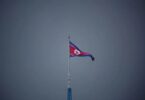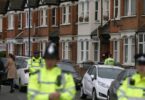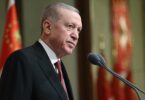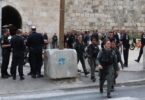DHAKA: An estimated 50,000 people have attended the funeral of an influential religious leader in Bangladesh whose death in prison triggered mass protests.
Delwar Hossain Sayedee, 83, was sentenced to death in 2013 for rape, murder and the persecution of Hindu Bangladeshis during the country’s war for independence in 1971.
Sayedee, whose sentence was later reduced to “imprisonment till death”, died on Monday after suffering a heart attack in a prison outside the capital Dhaka, prompting protests across the city that turned violent when police moved in to disperse the demonstrators.
There was heavy police security at the funeral on Tuesday at Sayedee’s hometown in the coastal Pirojpur district.
“Some 50,000 people joined the funeral prayer,” the deputy police chief for the district, Sheikh Mustafizur Rahman, told the Agence France-Presse news agency.
Elsewhere in the country, one person was killed during a confrontation between police and a group trying to hold a memorial ceremony for Sayedee.
“They gathered and wanted to hold a funeral prayer, stoking a clash between them and police,” Chakaria duty police officer Mohammed Selim Mia told AFP. “One person has died and some more have been injured, including our policemen.”
Sayedee was vice president of the opposition Jamaat-e-Islami party, a hardline political group with a huge following despite being banned for much of its history.
The party remains controversial for supporting Bangladesh’s continued union with Pakistan during the former country’s brutal 1971 civil war.
Sayedee rose to prominence in the 1980s after he started preaching in some of the Muslim-majority nation’s top mosques.
In his heyday, he would draw hundreds of thousands to his speeches, recordings of which were widely distributed.
Mass protests after conviction
His conviction a decade ago by a war crimes tribunal – criticised by rights groups for several procedural shortcomings – triggered the deadliest protests in Bangladesh’s history with at least 100 people killed in the clashes that followed.
News of Sayedee’s death on Monday night brought thousands of his party’s supporters into the streets to chant anti-government slogans.
“We won’t let the blood of Sayedee go in vain,” supporters shouted. Many criticised the government of Prime Minister Sheikh Hasina, which is preparing for a general election slated for January.
Police reportedly dispersed protesters with rubber bullets and tear gas before dawn.
Courtesy: aljazeera







